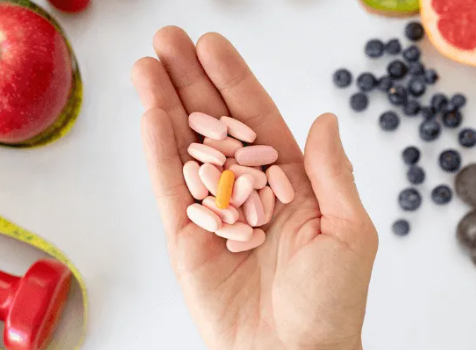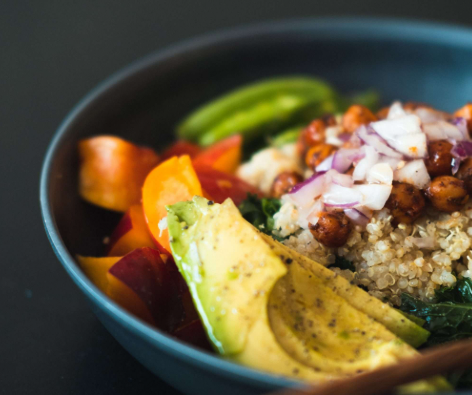
Diverticulitis can cause significant abdominal pain and discomfort, and many people with this condition seek dietary changes to help manage their symptoms. Although there is no definitive cure for diverticulitis, making careful food choices can play a crucial role in reducing flare-ups and alleviating pain. In this article, we’ll discuss the foods to avoid with diverticulitis and how they affect your digestive system.
What Is Diverticulitis?
Diverticulitis occurs when small pouches, called diverticula, in the digestive tract become inflamed or infected. These pouches are most commonly found in the large intestine. While some individuals may develop diverticula without any symptoms—a condition called diverticulosis—others may experience painful attacks due to inflammation, leading to symptoms like bloating, fever, nausea, and irregular bowel movements. Most cases of diverticulitis can be managed at home with rest, dietary adjustments, and antibiotics, although surgery is needed in rare, severe cases.
Foods to Avoid During a Diverticulitis Flare-Up
While there is no universally prescribed diet for diverticulitis, avoiding certain foods can help prevent flare-ups and ease symptoms when they occur. If you are managing diverticulitis, it’s advisable to reduce the consumption of the following:
- Red Meat: Often high in fat and difficult to digest, red meat can exacerbate symptoms.
- Refined Grains: Foods made from refined grains, like white bread or pasta, are low in fiber and can be harder on the digestive system.
- Fried Foods: High in unhealthy fats, fried foods can contribute to inflammation and digestive discomfort.
- Full-Fat Dairy: Foods like milk, cheese, and ice cream can be heavy on the digestive system, especially in large quantities.
- Fermented Foods: Items such as kimchi, sauerkraut, and pickles can cause gas and bloating.
- Certain Vegetables: Cabbage, Brussels sprouts, onions, and garlic may aggravate symptoms due to their high fiber and sulfur content.
- Sugar and Sweeteners: Foods with added sugars or artificial sweeteners can worsen inflammation and disrupt digestion.
Specific Foods to Avoid During an Active Attack
If you’re experiencing a painful episode of diverticulitis, it’s crucial to avoid foods that may worsen symptoms. In addition to the foods mentioned above, consider limiting:
- Certain Fruits: Apples, pears, plums, apricots, peaches, and dried fruits can be tough on the digestive system.
- Beans and Legumes: These can lead to gas and bloating, which is uncomfortable during an attack.
- Whole Grains: While beneficial for digestion in general, whole grains can be difficult to digest during a flare-up.
High-FODMAP Foods
FODMAPs are short-chain carbohydrates that are not easily digested, often causing gas and bloating. People with diverticulitis may benefit from limiting high-FODMAP foods, which include:
- Certain Fruits (e.g., apples, pears, watermelon)
- Dairy Products (especially those high in lactose)
- Beans and Lentils
- Cabbage and Brussels Sprouts
- Onions and Garlic
Adopting a low-FODMAP diet has been shown to help reduce symptoms of diverticulitis and other digestive issues.
Sugary and Fatty Foods
A diet high in sugar and unhealthy fats, particularly red meat, can increase the risk of diverticulitis attacks. Limiting these foods and maintaining a balanced, healthy diet has been linked to fewer flare-ups. This includes reducing:
- Red Meat
- Processed Foods
- Fried Items
Fiber and Diverticulitis
Fiber plays a crucial role in managing diverticulitis, but it’s essential to be cautious with fiber intake, especially during an active attack. While high-fiber foods are beneficial for preventing diverticulitis by promoting regular bowel movements, they may cause discomfort during a flare-up due to their bulk.
What About Nuts and Seeds?
It was once believed that small particles from nuts, seeds, and popcorn could get lodged in diverticula, potentially worsening symptoms. However, recent research has debunked this theory, and most doctors now agree that these foods can be safely consumed, provided they are eaten in moderation.
Other Lifestyle Factors to Consider
In addition to adjusting your diet, other lifestyle factors can influence your risk of developing diverticulitis. Smoking, lack of physical activity, and obesity have all been linked to higher rates of the condition. Reducing stress and maintaining a healthy weight can help manage symptoms and prevent flare-ups. Additionally, heavy alcohol consumption, regular use of non-aspirin NSAIDs, corticosteroids, and opiate analgesics may increase the risk of diverticulitis.
Conclusion
While there is no one-size-fits-all diet for diverticulitis, paying attention to the foods you consume can significantly reduce symptoms and improve your quality of life. By avoiding foods that are hard on your digestive system, particularly during flare-ups, you can help manage the condition more effectively. Maintaining a balanced diet with adequate fiber and managing other lifestyle factors will also contribute to long-term digestive health. Always consult your healthcare provider before making significant dietary changes to ensure the best approach for your specific situation.










